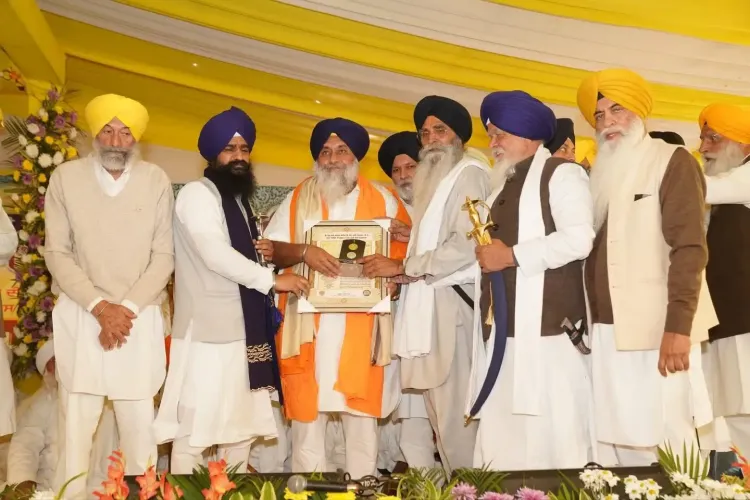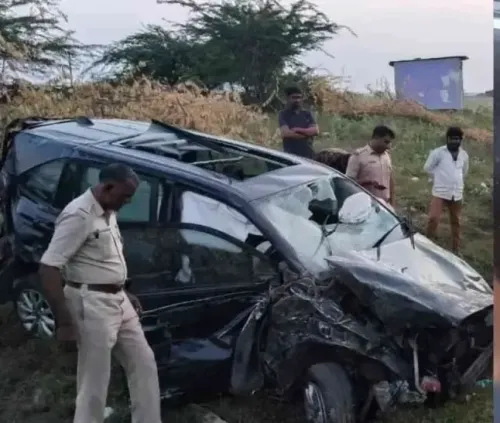How Can Sikhs Reclaim Their Institutions from the Centre and State Governments?

Synopsis
Key Takeaways
- Sikh community urged to unite for reclaiming institutions.
- Criticism of political figures for undermining Sikh interests.
- Highlighting Guru Tegh Bahadur's legacy as a unifying symbol.
- Emphasis on recognizing internal threats to community cohesion.
- Call for adherence to the principle of 'sarbat da bhala'.
Anandpur Sahib (Punjab), Nov 25 (NationPress) The President of Shiromani Akali Dal (SAD), Sukhbir Badal, made a passionate call on Tuesday for the Sikh community to come together under his party's leadership to reclaim the oversight of Sikh institutions and places of worship that have been seized by the Central and state governments.
Speaking at a Gurmat Samagam at Gurdwara Sri Sis Ganj Sahib to commemorate the 350th martyrdom anniversary (Shaheedi Diwas) of the ninth Sikh Guru, Guru Tegh Bahadur, Badal stated, "Without uniting under one flag, protecting your religious institutions will remain impossible."
He noted that the management of Sri Huzoor Sahib and Patna Sahib was taken from the community due to the weakening of the party. He argued that central conspiracies, along with the Haryana government's overreach, resulted in the formation of a separate Gurdwara Parbandhak Committee for the region.
Badal criticized Punjab Chief Minister Bhagwant Mann for engaging in propaganda by claiming to bestow the holy city designation upon towns. He emphasized that both Anandpur Sahib and Talwandi Sabo were designated as holy cities about 15 years ago by the former Chief Minister Parkash Singh Badal.
Furthermore, the SAD President condemned the Chief Minister for showing disrespect towards Sri Akal Takhat Jathedar, Giani Kuldeep Singh Gargaj. He remarked that anyone who fails to respect the Jathedar of the Sikh Panth's highest religious authority is an adversary to the entire community.
"Such insults should not be tolerated under any circumstances," he advised.
Badal also urged the community to recognize the elements attempting to undermine it.
"Awaken and discern who your true allies are and who is covertly undermining the community while pretending to be one of us," he asserted.
He highlighted how, despite the legacy of Guru Tegh Bahadur, who sacrificed his life to protect Hinduism, political factions are inciting divisions among different faiths for electoral advantages. Calling for unity, Badal said: "We should embrace the principle of 'sarbat da bhala' rather than succumbing to division."









